SUMMARY
This is AI generated summarization, which may have errors. For context, always refer to the full article.
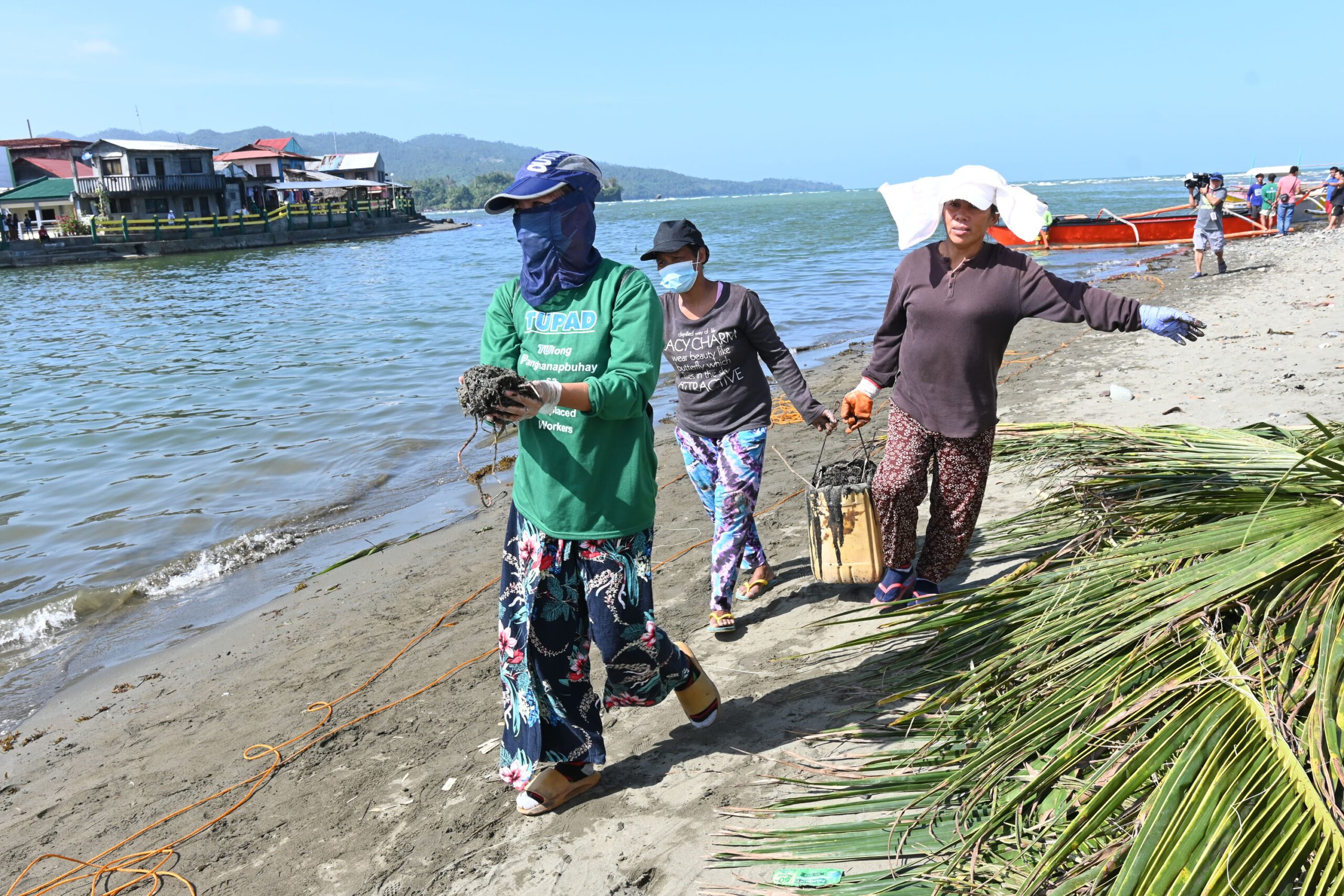
ORIENTAL MINDORO, Philippines – Ben Villanueva knows the fishing net like the back of his hand.
Fishing is what the 61-year-old native of Pola, Oriental Mindoro has known all his life. It’s a skill that he inherited from his father, also a fisherman.
So when a massive oil spill reached the shores of his hometown, he knew life had instantly become more difficult.
“How can our family eat?” asked Ben, the breadwinner in a family of seven.
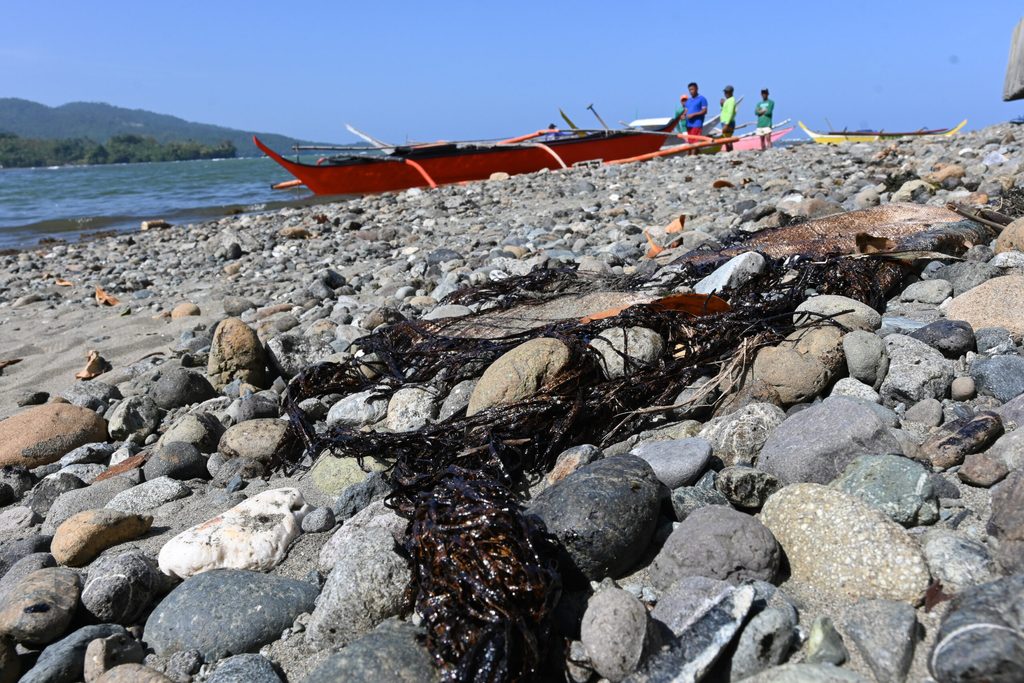
It’s a reality that grips not only Ben, but hundreds of families in a humble municipality that relies significantly on the sea. The sinking of oil tanker MT Princess Empress off the coast of the province in February has threatened their source of income, exposed them to health risks, and put in danger the environment that has kept them alive.
Making ends meet
Once it had become clear that the oil spill had reached the fishing community, the municipal government directed fishermen to stay ashore.
That’s around 1,700 fishermen and more than 3,500 families affected by the order, according to the local government.
“We do not know until when that will be. Maybe until there’s oil in the sea, we can’t fish,” said Je Martinay, a fisherman and Bantay Dagat or sea patrol officer in the coastal village of Tagumpay.

Roberto Castillo Bargamino, a 50-year-old fisherman, is worried about his neighbors, who have applied for loans but may now be unable to pay them due to the sudden loss of income.
“How do those people who are compelled to pay their dues every week do so?” he asked.
Playing the hand they are dealt with is now top of mind for residents.
Tourism utility aide Jenalyn Exciya, for example, already saw a silver lining during an interview with Rappler: “In terms of food, there are bananas anyway, which someone from the farm gives us.”
Roberto also said he knows of a fellow fisherman who is already planning to leave the town and search for better opportunities outside the island.
“Those who have children in Batangas province will go there,” he claimed. “They will ask their relatives to get their permits for them, so that they can go fish there.”
The Department of Social Welfare and Development (DSWD) said it has distributed nearly a thousand family food packs to residents in Pola. Its newly-minted chief Rex Gatchalian even flew to the town and visited the most remote villages to distribute relief packages.
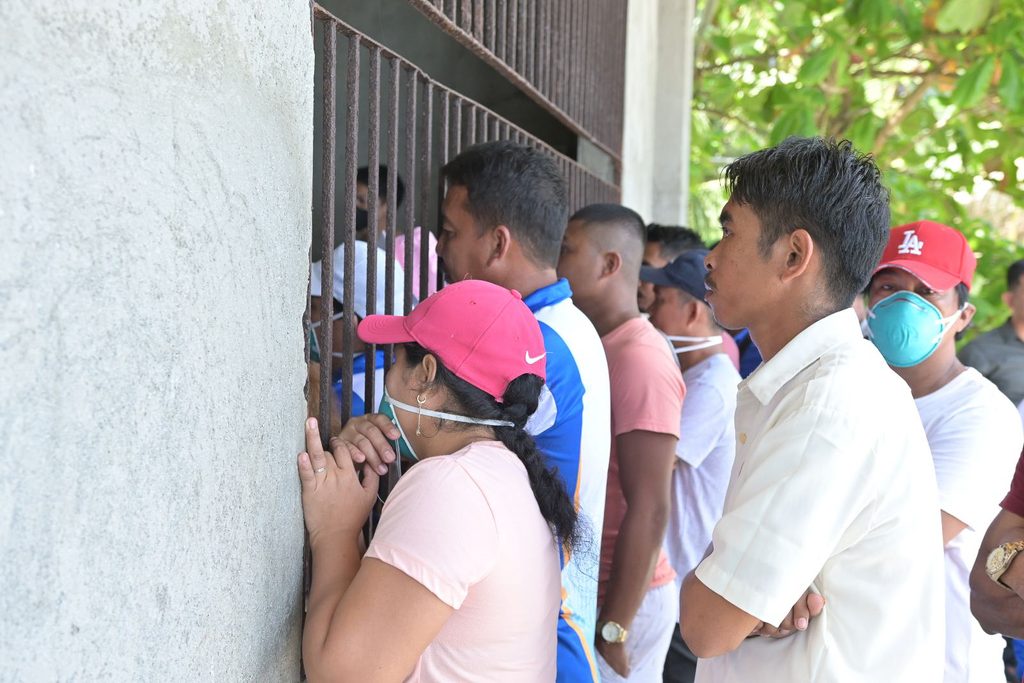
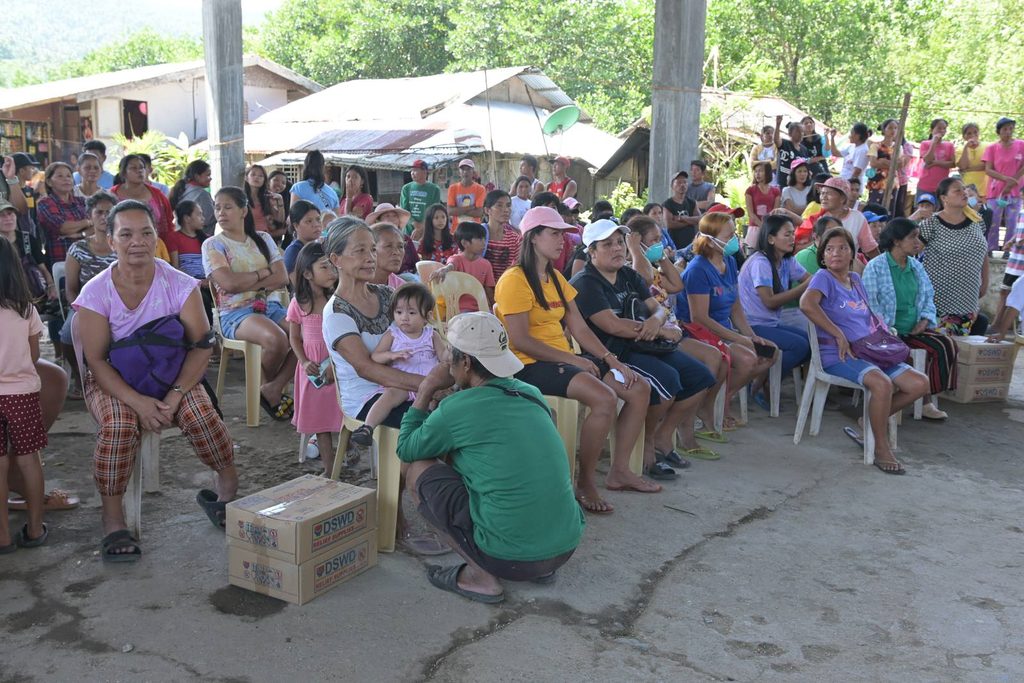
Pola Mayor Jennifer Cruz (known to her constituents as Ina Alegre, her screen name from her showbiz days) said she is thankful to the national government, but acknowledged that it’s a tough road ahead.
“Maybe they can support us for one month or two months, but after that, we do not know. So we need to think of alternative jobs for the people,” she told Rappler, adding she will knock on the doors of DSWD, as well as labor and agriculture departments.

Cleanup
A major cleanup led by the national government has yet to kick into high gear, so early on, residents took matters into their own hands, literally.
In the first days of the spill, villagers used water containers, paint buckets, pails, and coconut husks to remove thousands of liters of oil from the coastline, sometimes without gloves or face masks and other equipment.
The next few days, the municipal and provincial governments advised residents not to clean the shorelines without proper gear.

At least 43 people have fallen ill supposedly due to the oil spill’s effects. Symptoms they exhibited include dizziness, sore throat, chest pains, and headaches.
“The stench is overpowering, it’s really something else. Your throat dries up upon inhaling it, no matter how much water you drink,” said Jenalyn, whose job is to clean the coastline even before the oil spill rocked the town.
But most cleanup efforts are really community-led, the provincial disaster risk reduction and management office said.
In a bayanihan effort, fishermen installed makeshift oil spill containment booms made of bamboo, with coconut leaves attached to it, to catch oil before it reaches the shore.
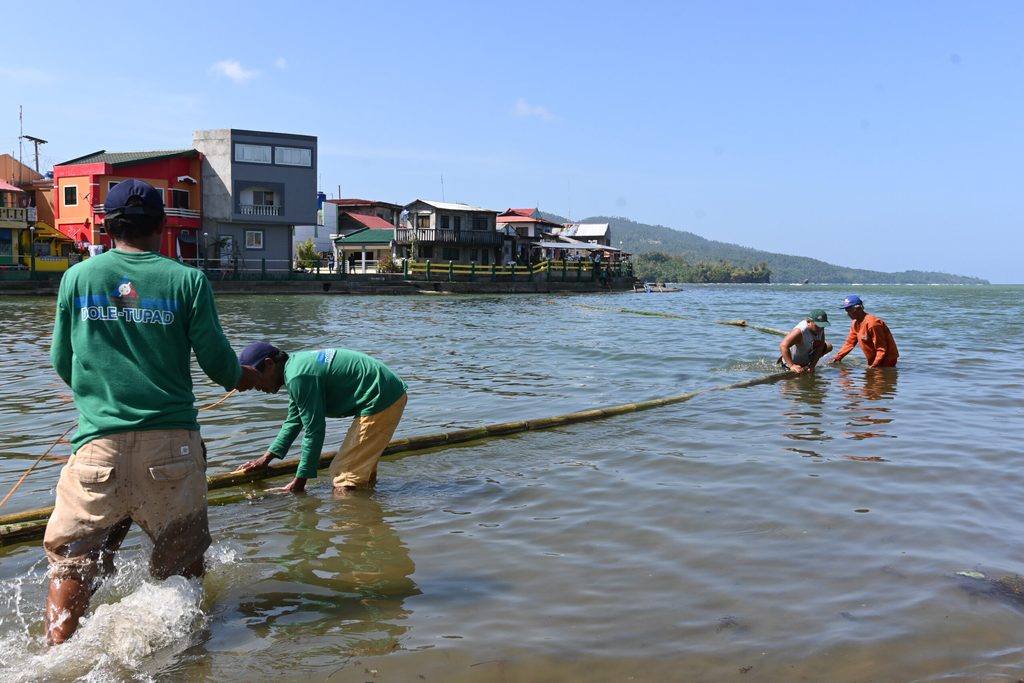
Since it’s the community at the forefront of the cleanup, the DSWD already unveiled a cash-for-work scheme, allowing volunteers who join efforts to get paid minimum wage.
The agency, however, advised the community to wait for official instructions before joining cleanup activities.

Environmental harm
Aldrin Villanueva, a fishing community leader, said their efforts are focused on making sure they protect their mangroves.
In a place where a storm’s wrath could spell catastrophe, residents are fully aware that mangroves save their lives: the group of trees can dissipate storm surges, and block waves.
But in some villages, mangroves are already coated in black oil, threatening their survival.
“If we don’t remove the oil, the damage will be permanent. Roots from the mangrove should be exposed because that’s how our mangroves breathe. If that is covered in oil, it won’t have access to oxygen,” Environment Undersecretary Jonas Leones said.
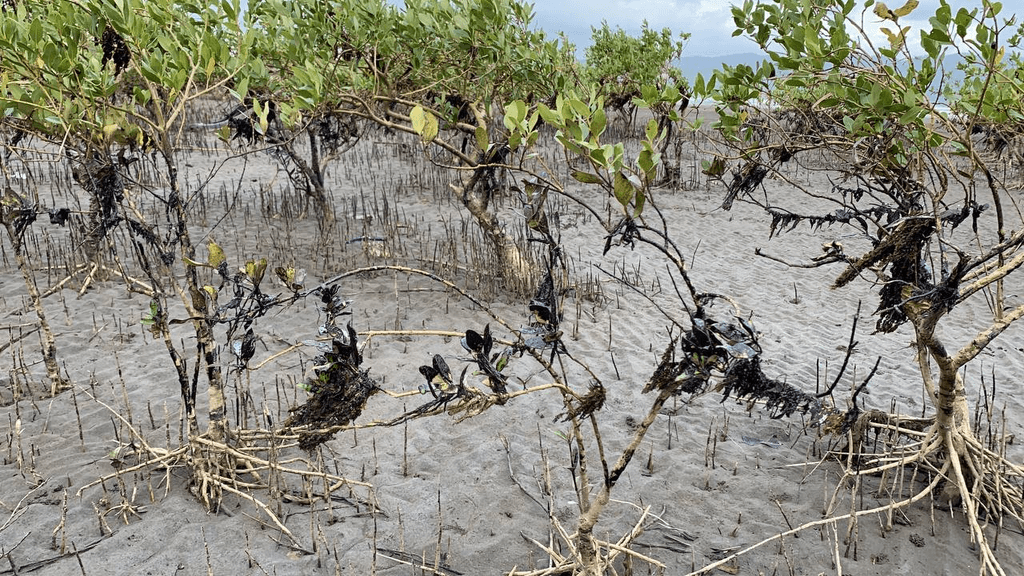
The oil spill has impacted not just Pola, but also eight other towns in the province.
It’s a headache for Governor Bonz Dolor, who takes pride in their over 30 marine-protected areas. The spill puts a question mark on the future of the province’s marine biodiversity.
“These marine-protected areas are breeding grounds. If these are affected, the source of fish would also be affected, causing an effect on the market chain,” he said. “Production-wise, there’s also a problem, so we would need to import fish from the outside, when we used to send fish outside of Mindoro.”

The immediate effects of the oil spill in Pola are already overwhelming to face at present, but the full extent of the damage has yet to be determined. Authorities have only recently located the exact site of the sunken vessel, so there’s no clear picture yet of how much oil leaked into the sea.
What officials know so far is that the ship was carrying 800,000 liters of unrefined oil, and is leaking around 200 liters of oil per minute.
Contractors hired by the ship’s owner, RDC Reield Marine Services, have yet to deploy sophisticated underwater robots that can stop the leak from the sunken ship, and suck the remaining oil from it.
Compensation for damage to the environment is another separate discussion, and RDC has yet to offer a concrete answer.
If the experience of Guimaras province – which grappled with the worst oil spill in Philippine history – were to be used as a guide, fishing could remain prohibited for at least three months, and cleanup would take years.
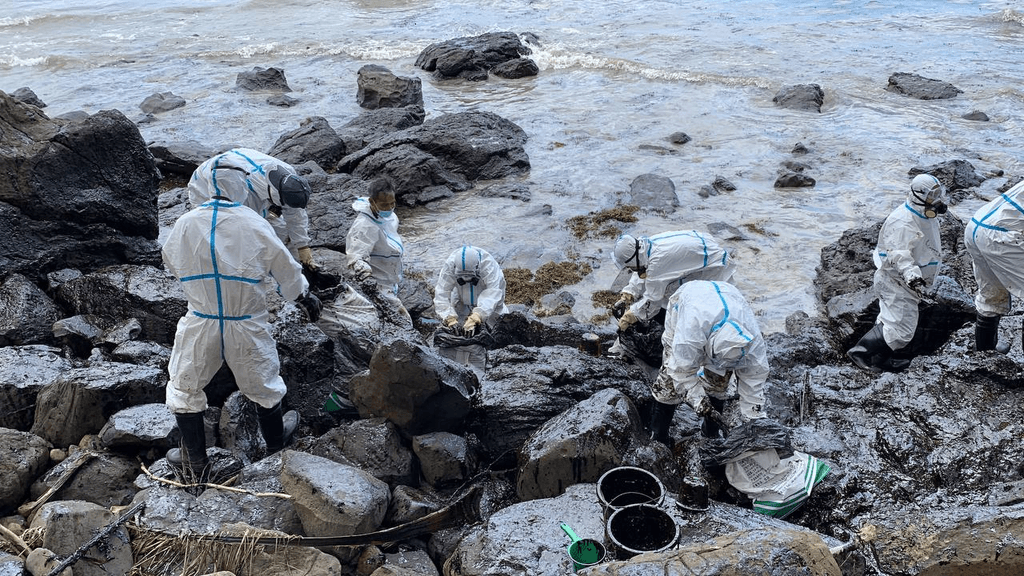
For now, people of Pola try to get by, but are bracing for the long-term effects of the oil spill in their beloved hometown.
“It’s one of the things I’m worrying about. Until when are we going to live like this?” Mayor Cruz asked. – Rappler.com
* Quotes in Filipino were translated into English, and some were shortened for brevity.
Add a comment
How does this make you feel?





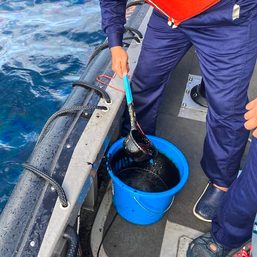




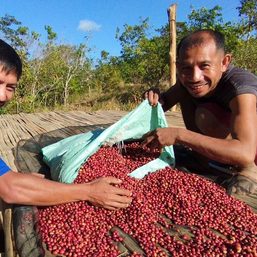
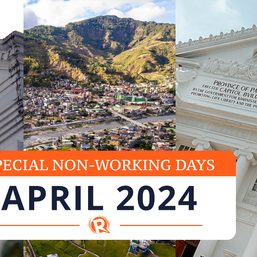
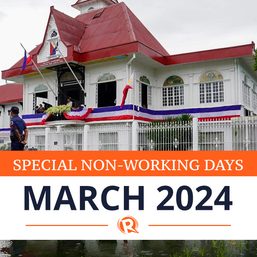
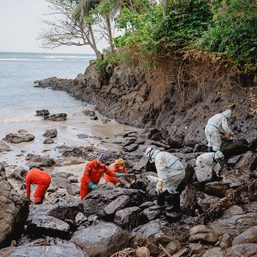
There are no comments yet. Add your comment to start the conversation.